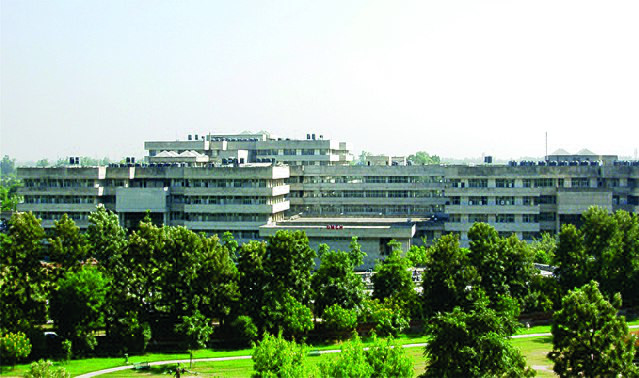PG Medicine: One college’s ‘unique situation’ can alter admission policy
Team Careers360 | December 12, 2019 | 02:20 PM IST | 3 mins read

NEW DELHI: A court case, arising from conflict over admissions to a single medical college in Chandigarh, can potentially alter the way admissions into postgraduate medical courses are conducted.
A Supreme Court bench of Justice AM Khanwilkar and Justice Dinesh Maheshwar was hearing the case involving the Government Medical College and Hospital, Chandigarh. But they have now referred the case to a large bench which will decide whether domicile-based reservations within state quotas in postgraduate medical programmes is “constitutionally permissible” and what policy should be followed for admissions.
A ‘unique situation’
The GMCH is the Union Territory of Chandigarh’s only medical college. The Post Graduate Institute of Medical Education and Research, or PGIMER, is run by the Union Government and doesn’t have an MBBS programme or a state quota.
In state or UT-run public institutions, postgraduate seats in medicine are divided into two halves – 50 percent seats are in the “all-India quota” and the rest in the state quota, in this case, called the “UT pool quota”.
As the prospectus of the Chandigarh medical college shows, the state quota is subdivided into two halves. Fifty percent seats are filled through “institutional preference”. They go to graduates of the same institution. The rest are open to MBBS graduates from other institutions within the same area or region. For this, the graduates have to furnish proof of “domicile” showing they have been residents of Chandigarh for at least five years before the last data of submission of the application.
These policies and ways of subdividing quotas are all standard practice for medicine across the country. However, GMCH’s solitary status complicated its situation. There is no other medical college in the area and, therefore, no other graduates it could admit into the “UT pool quota” of its postgraduate medicine seats. While GMCH was already admitting its own graduates into the seats earmarked for “institutional preference”, it was doing the same also for the UT quota. For all practical purposes, the UT and “institutional preference” quotas became identical for the college.
Court cases
This situation led to court cases, first in the Punjab and Haryana High Court. The court’s decision to abolish the UT Pool quota for GMCH in April, 2019, compelled the college to nullify the first round of counselling for PG seats and start afresh. In July, the High Court further clarified that only students who had completed their final years of schooling would be entitled to seats under UT Pool quota in GMCH.
The matter reached the apex court which set aside the High Court’s decision in the same month. However, in its final judgment, the SC has mainly laid out the problem more clearly and raised more – and much larger – questions. It asks “whether providing for domicile/residence-based reservation in admission to “PG Medical Courses” within the state quota is constitutionally invalid and is impermissible”. If it is permissible, the judgement asks: “What should be the extent and manner of providing such domicile or residence-based reservation for admission to “PG Medical Courses” within the state quota seats?” And, what “modality” should be adopted by a state or UT with just one medical college. The bench has referred the matter to the Chief Justice of India to constitute a "larger bench" that will address these issues.
Write to us at news@careers360.com
Follow us for the latest education news on colleges and universities, admission, courses, exams, research, education policies, study abroad and more..
To get in touch, write to us at news@careers360.com.